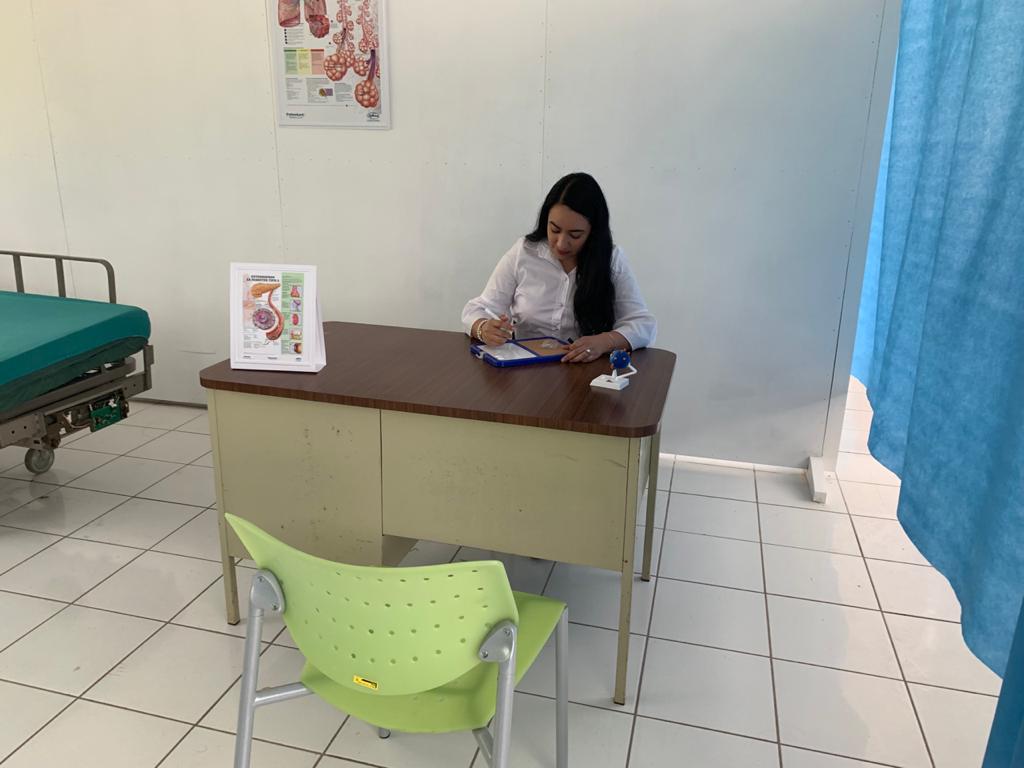
NICARAGUA: Medical care for people with limited resources to improve through USAID funding
The University Clinic for Women and Children Santa Rita de Casia will improve medical care for women and children thanks to USAID funding.
NEW ROCHELLE, NY (Aug. 12, 2021) The University Clinic for Women and Children Santa Rita de Casia, part of the Catholic University of the Dry Tropics in Estelí, Nicaragua, will improve medical care for people with limited economic resources in the northern zone of Nicaragua in the departments of Estelí, Madriz and Nueva Segovia. This project was made possible thanks to a grant from the U.S. Agency for International Development’s American Schools and Hospitals Abroad (USAID-ASHA) program secured by Salesian Missions, the U.S. development arm of the Salesians of Don Bosco.
The project, which runs from October 2019 to the end of September 2023, is currently in initial stages of construction. Once the facility is completed and equipped, the medical-surgical clinic for women and children will provide high-quality obstetrics, pediatrics and gynecology services. The clinic, created according to U.S. standards, will promote the U.S. values of gender equity, scientific excellence and equal access to quality medical care.
“We extend our gratitude to USAID for funding this important project that will help to improve the medical care available for women and children,” said Father Gus Baek, director of Salesian Missions. “This project will also help to provide practical experience for medical students as they train to become medical professionals. This will help to improve the overall medical care and expertise available in this part of Nicaragua.”
As part of this project, meetings were held to finalize the rehabilitation and refurbishment of the Santa Rita de Casia Medical Dispensary, which is also part of the Catholic University of the Dry Tropics medical school program, in order to start providing outpatient care to people with limited economic resources.
The medical dispensary, which opened on Aug. 4, features two areas for primary health care and specialties and one area for the performance of and training in minor surgery procedures. It features three hospital beds, washbasins, shelves for files, and didactic materials such as dolls and posters for learning cardiopulmonary resuscitation, cannulation, and endotracheal intubation. Other types of medical and educational services will be provided, including care for children and adults, electrocardiograms, and nebulization, among others.
Medical students in their first to third years of study will train at the medical dispensary and then move onto more advanced training in obstetrics, gynecology and pediatrics at the new medical-surgical clinic.
Thanks to donor funding, Salesian Missions was able to provide furniture for the medical dispensary for offices, meeting rooms and classrooms. The furniture will improve the space for doctors as well as for students and patients.
Nicaragua, the poorest country in Central America and the second poorest in the Western Hemisphere, has widespread underemployment and poverty with a quarter of its population living below the poverty line, according to the World Bank. More than 80 percent of Nicaragua’s poor live in remote rural communities where access to basic services is a daily challenge.
Years of widespread poverty have taken their toll and many residents suffer from poor health conditions including HIV/AIDS. In addition, crime, violence against women, gang violence and high unemployment result in challenging economic and social conditions, particularly for young people and women.
###
Contact: [email protected]
